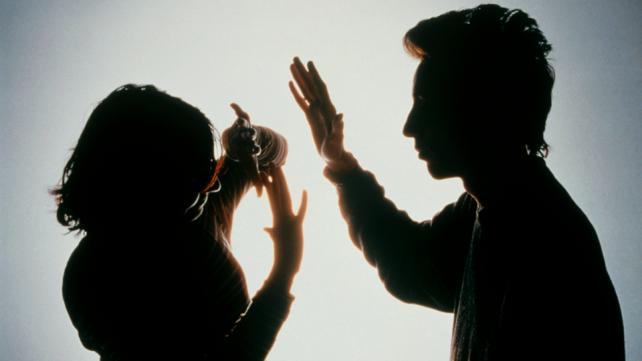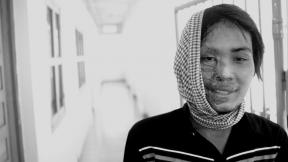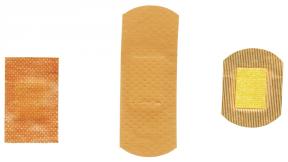
October is Domestic Violence Awareness Month nationwide. Three to four million women are beaten annually and every 15 seconds a woman is abused in her home. Nationally, domestic violence has become the number one cause of death among women.
One reaction may be, "that's a tragedy that doesn't effect Muslim families". But it does.
While research on the prevalence of family violence among Muslims is just beginning, Imams, community leaders and social workers across North America confirm that Muslim women, children and men are being affected by this devastating social problem.
Spouse abuse is described by The Family Violence Prevention Fund as "a pattern of purposeful behaviors, directed at achieving compliance from or control over the victim."
A pattern of assaultive and coercive behaviors, including physical, sexual, and psychological attacks, as well as economic coercion characterizes spousal abuse. Behaviors include shoving, pushing, destruction of valuables, hurting pets and loved ones- even children.
Physical violence may lead to broken bones, head injury, vision loss, and death. Among victims, emotional abuse leads to a broken spirit and feelings of hopelessness, helplessness and oppression.
Domestic abuse knows no boundaries. It occurs among well known and little known community members, the rich, the poor, the well-educated and uneducated, foreign-born and American-born, all cultures, racial and religious groups-including Muslim converts and non-converts.
The signs include controlling behavior, isolation, uncontrolled anger, unexplained bruises, patterns of irrational thinking and victim blaming, intimidation; "joking" about taking another wife, name calling and remarks that degrade the victim's self esteem. Domestic violence is cyclical, from explosion to remorse to explosion. Women and men are victims. Often one spouse inflicts abuse on another but both spouses may also hurt each other.
Children in these families are our most vulnerable victims. The majority of battered women have children who are hurt physically and emotionally by the violence in their homes. More than half the children whose mothers are battered are likely to be physically abused themselves.
Domestic abuse also occurs during pregnancy and can severely impact the child in utero. According to the statistics eight percent to 26 percent of battered women were pregnant during the abuse. When children are raised in violent homes they usually grow up to perpetuate the cycle of violence in their families.
Violence against women is not an Islamic tradition. Prophet Muhammad(peace and blessings be upon him) instructed Muslims regarding women, "I command you to be kind to women." He said also, "The best of you is the best to his family (wife). The Quran urges husbands to be kind and considerate to their wives, even if a wife falls out of favor with her husband or disinclination for her arises within him. It also outlawed the pre-Islamic practice of inheriting women as part of the estate of the deceased.
A translation of Quran says, "O you who believe! You are forbidden to inherit women against their will. Nor should you treat them with harshness, that you may take away part of the marital gift you have given them, except when they have been guilty of open lewdness; on the contrary, live with them on a footing of kindness and equity. If you take a dislike to them, it may be that you dislike a thing through which Allah brings about a great deal of good. (Quran 4:19)"
Dr. Jamal Badawi, author of Gender Equity in Islam, discusses Chapter 4, verse 34 of the Quran which is often used to justify maltreatment of women. He indicates, "under no circumstances does the Quran encourage, allow, or condone family violence or physical abuse. In extreme cases, and whenever greater harm, such as divorce, is a likely option, in an effort to save the marriage it allows for a husband to administer a gentle pat with a miswak (a small natural toothbrush) to his wife that causes no sort of physical harm to the body nor leaves any sort of mark. It may serve, in some cases, to bring to the wife's attention the seriousness of her continued unreasonable behavior, and may be resorted to only after exhausting other prerequisite steps".
Prophet Muhammad said, "Do not beat the female servants of Allah;" "Some (women) visited my family complaining about their husbands (beating them). These (husbands) are not the best of you" and "[is it not a shame that] one of you beats his wife like [an unscrupulous person] beats a slave and maybe sleeps with her at the end of the day." (Riyadh Al-Saliheeen, p137-140). In another Hadith the Prophet (pbuh) said, "...How does anyone of you beat his wife as he beats the stallion camel and then he may embrace (sleep with) her?..."(Sahih Al-Bukhari, vol. 8, hadith 68, p.42-43).
Domestic violence is preventable by building our Iman (faith), remembering and implementing the commands of Allah and the example of His Prophet. Marriage preparation education and premarital counseling can help future spouses learn skills that will assist them in developing a healthy, violence-free family life.
Anger management, communication skills, stress management, decision making and problem solving skills are also very important life skills that can help to prevent domestic violence. During October and throughout the year Khutbas (sermons) and study circles should focus on Islamic ways to prevent family violence.
As Imams, community leaders, brothers and sisters we can not be tolerant of family violence on any level. This is a problem that will not be eliminated unless we act. We must recognize the signs of spouse abuse and act to prevent it or work towards its elimination. We must stop encouraging the marriage of individuals with a family history of domestic abuse which has not been resolved through counseling and sincere repentance to Allah. We must encourage couples to seek spiritual and professional help.
Shelters are needed for women and children seeking a safe, protective, Islamic environment. Islamic Social Services are needed to provide preventive education, support and crisis intervention. Insha Allah (God willing) we must become partners against domestic violence. Spread the word. Stop the hurt.








Comments
I'm a victim
I'm going through this, I'm being mentally abused I'm scared I don't know what to do? My brain is hurting lately my heart beats so fast I'm so depressed and scared to talk to the imam. I really am trying to be patient but my husband isn't Working to fix it I try I fail. What do I do?
Location
There is an great organization in Ontario Halton area that deals with domestic abuse in Islamic communities and related issues .They have an outreach program and work with other Canadian organize. Dealing with domestic issues. They are MADA- Muslims against domestic abuse. Contact person is. Mira Khattab @ (905) 336-2552.
Location
Salaam all, Although I don't live in Atlanta, GA anymore, I would like to say that there is a great resource in the Atlanta area (and might even be part of the Altanta Masjid) but they have a Facebook page titled "Muslim Men Against Domestic Violence -Altanta" and I commend them for taking a stance on the subject that some people are afraid to discuss or draw attention too. I thank those brothers (and sisters) that are involved in the support and access to help for all of our brothers and sisters in the community that might have to deal with this issue. Let's spread the word to get more communities involved so we can support each other. This is not a "Muslim" issue, this is a "Human" issue that needs to be resolved. Insha'Allah we can all do this together as a global community. Here is the website/facebook page: http://www.facebook.com/group.php?gid=58219242224#!/group.php?gid=582192...
Location
Overall, this was a well-written and informative article. I've read literature concerning domestic violence. While women should not even think of beating up men, the overwhelming majority or percentage of batterers are male/men.In my view, battering involves a pattern of learned behavior in which fear is the dominating factor, not just merely a physical hit for a physical hit, even in some cases where the woman has the strength, aggression, and/or stamina which the man is expected to have. Personally, I think if there are men--Muslim and non-Muslim--who have wives who mistreat, disrespect, and/or physically abuse them, why would these men continually go home to these women day after day, share meals with them, and--last but not least--share a marriage bed and have sexual relations with them? Battering involves fear of one partner for the other one. If they are so fearful or scared of these women, then they should get away from them.
Location
When I saw this I couldn't believe what happens to these poor women and children. When you think about it we are so lucky not to live in these countries.
Location
This is a fabulous article - well written and making a clear point that we all need to hear. Thank you!!!
Location
It is a good article for information. But what about violance against Men? Perhaps it sounds strange, but what about those men, who are the victums of violant and aggrassive behaviour of their wives. Surprisingly, it is very very common in North America. What about those women, who delibratly used locals laws in their favor and physically, mentally and spirtualy abuse their husbands. It is very strange, laws in country like Pakistan, Iran, Saudi Arabia (or any '3rd world country' ) prevent man and give benifit against these type women. Please enlighting us on that issue in refernce to Quran and Hadith.
Location
Add new comment